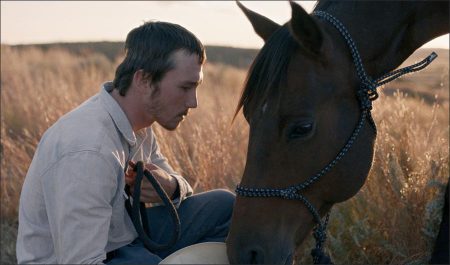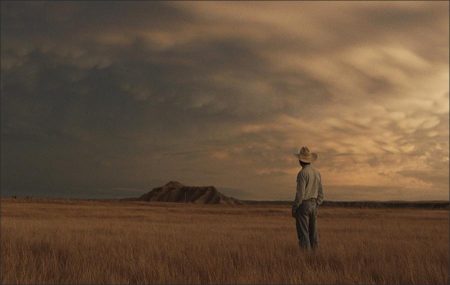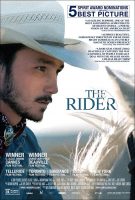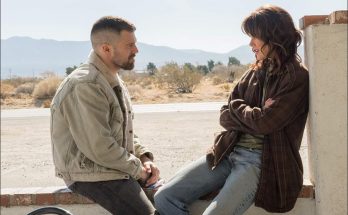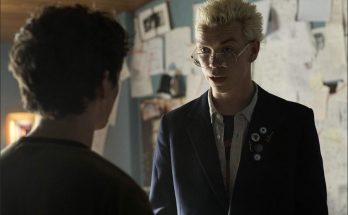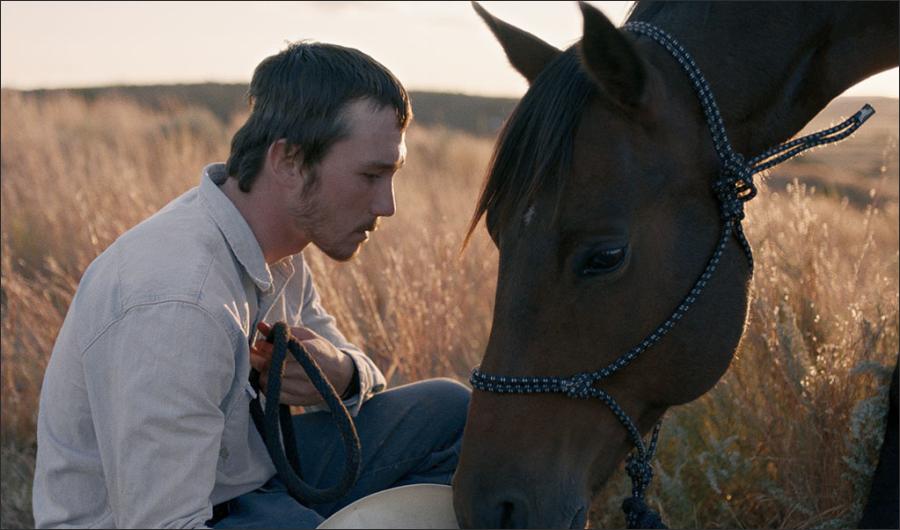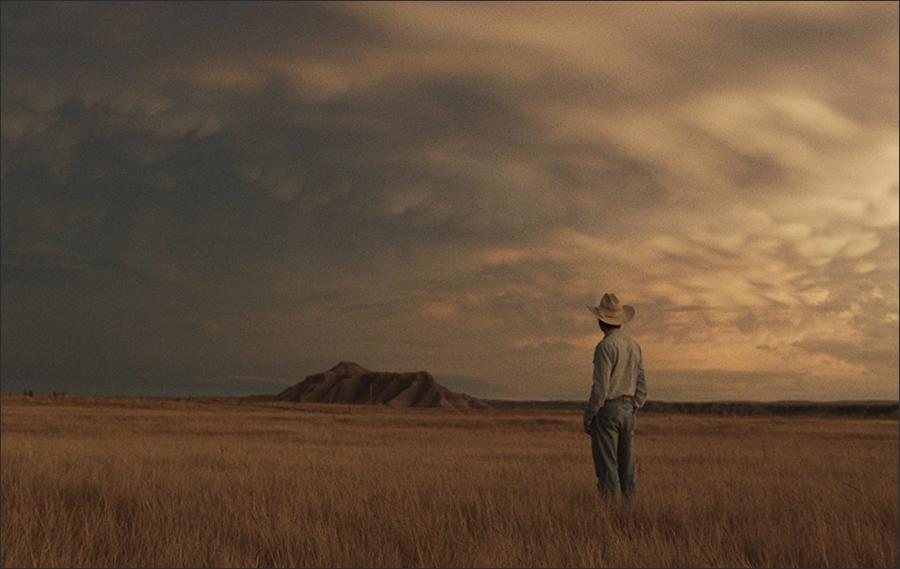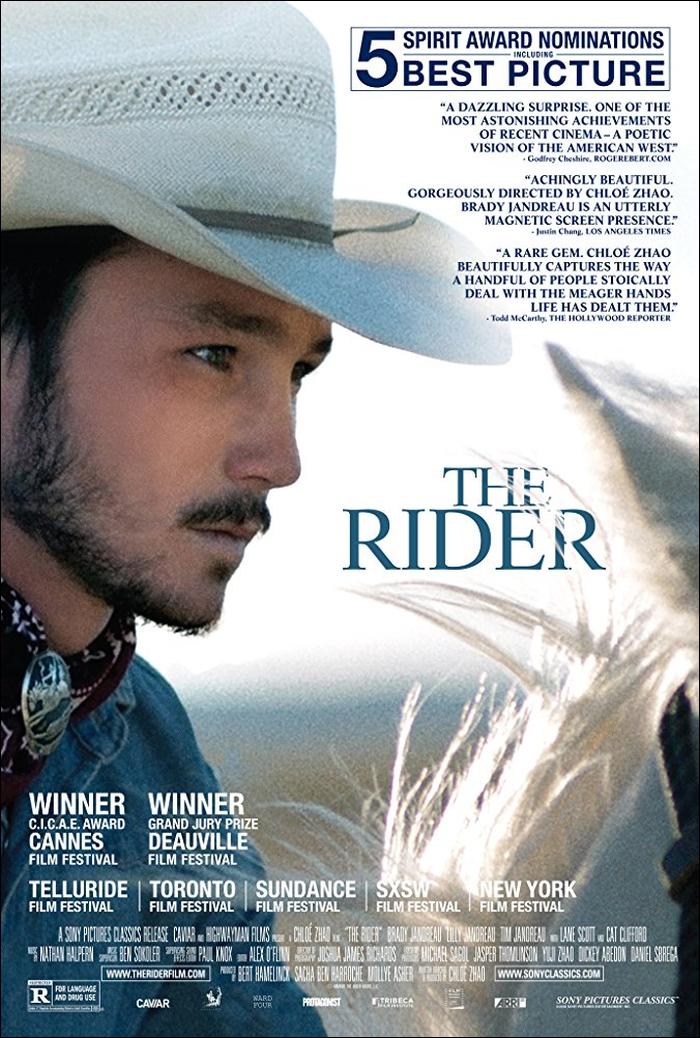Brady lives in poverty with his father Wayne and his younger sister Lilly, who has autism. The people in the film, including Brady and his family, are Lakota Sioux of the Pine Ridge Reservation.[5] Once a rising star in the rodeo circuit, Brady suffered brain damage from an accident at a bronc riding competition, hindering motor functions in his right hand and leaving him prone to seizures. Doctors have told him he can no longer ride, or else his seizures will get worse.
Brady regularly visits his friend Lane, who lives in a care facility after suffering severe brain damage from a similar bullriding accident. Meanwhile, his dad does little to take care of the family, wasting their money away on drinking and gambling. To help keep their trailer, he sells away their horse, Gus, much to Brady’s infuriation. Brady, in return, gets a job as a store clerk to help try to raise money for the family.
The Rider is a 2017 American drama film directed by Chloé Zhao. It was screened in the Directors’ Fortnight section at the 2017 Cannes Film Festival. At Cannes it won the Art Cinema Award. Sony Pictures Classics acquired the distribution rights in the U.S. and other territories two days following its premiere.
Film Review for The Rider
Drawing from the real lives of its actors, Chloe Zhao’s moody, wistful film mourns the thwarted rodeo dreams of a South Dakota cowboy. “Mammas, don’t let your babies grown up to be cowboys,” crooned Willie Nelson and Waylon Jennings in the 1970s, and to go by the heartsore heartland portrait painted by Chloé Zhao’s “The Rider,” it was pretty sound advice. Sadly for Brady Blackburn, the desperately unlucky protagonist of this moody elegy for a rodeo star, there is no mamma around to warn him off a dream that looks ever likelier to claim his life — just a hard-case dad, a vulnerable younger sister and a beloved horse reluctantly consigned to the auction lot.
Brady’s search for inner fulfilment beyond the eight-second high of the rodeo ring could be the stuff of many a corn-syrup country ballad, but gains artful integrity from Zhao’s favored docu-fiction technique — roughly tracing a script around the experiences of her non-professional actors — and dusty-dreamy visual style.
Future festival berths will be ample, but “The Rider” should also find a stable in the boutique distribution market following its premiere in Directors’ Fortnight at Cannes — the same section where Zhao’s debut feature “Songs My Brothers Taught Me” was warmly received in 2015. A poignant study of Lakota Sioux siblings in South Dakota’s Pine Ridge Indian Reservation, that film introduced audiences to the Chinese-American filmmaker’s style of reality-infused storytelling, and also established her clear affinity for the region: “The Rider” also takes Pine Ridge as its setting, with cinematographer Joshua James Richards (fresh from his atmospheric exploration of very different rural turf in the Yorkshire-set “God’s Own Country”) lending a crepuscular glow to its dry, tawny vistas.
The star and real-life object of Zhao’s gentle scrutiny this time is 20-year-old Brady Jandreau, a gifted young horse trainer and saddle bronc rider of Lower Brule Sioux heritage. The character’s last name may be changed, but the onscreen Brady’s situation at the film’s outset closely mirrors Jandreau’s: With a steel plate in his head following a near-fatal, skull-crushing rodeo fall at a state tournament, he is advised by doctors never to ride again. That’s easier said than done for a young man who has never shown much talent or inclination for anything off horseback. He takes a mundane job at a local supermarket, telling himself and others alike that it’s just until he’s sufficiently well to get back in the saddle, keeping tersely unspoken the fear that this may simply be the rest of his life.
With his father Tim and Asperger’s-affected younger sister Lilly (both played by their real-life Jandreau counterparts) viewing his plight with, respectively, brusque dispassion and unexamined optimism, Brady increasingly seeks solace in the company of friends who can’t advise or instruct him — not just the horses he dotes on, but another ex-rodeo star, Lane, who has been left permanently paralyzed and speech-deprived following his own riding calamity. While Lane might seem a living cautionary tale for his friend, Brady sees in him motivation to stubbornly continue, to ride for them both: “Say I won’t, and I will,” reads a telling tattoo on the paraplegic man’s back.
Zhao neither mocks nor sentimentally romanticizes such resolve: What “The Rider” does note, however, is the pressure of middle-American masculine archetypes weighing on Brady’s slender shoulders, in a milieu that presents few male ideals beyond the cowboy he has always aspired to be. “It’s all the same to a cowboy — you ride through the pain,” he and his rodeo buddies agree with macho bluster. Yet if you stop riding, and the pain’s still there, what comes next? This is not, it seems, something to be asked over beers and brags with the boys around a campfire in South Dakota; it’s as Brady oh-so-gradually puts the question to himself that “The Rider” reveals its broken heart.
Whether it comes down to pure lightning-in-a-bottle presence or a nurturing directorial hand — a bit of both, most likely — Jandreau is quite a find: a natural, laconic brooder, with the steady stance and gaze of a scragglier Heath Ledger. He’s up to the later emotional demands of Zhao’s script, too, a disconsolate sag to his physical swagger growing with each setback. And while the novice actors all acquit themselves well, it’d be remiss to overlook the formidable wrangling of the film’s ravishing equine ensemble, with which Richards’ camera lens is often mistily besotted. Even as harder realities hit home, “The Rider” is in complete sympathy with its protagonist’s wild, wistful yen.
The Rider (2018)
Directed by: Chloé Zhao
Starring: BraTerri Dawn Pourierdy Jandreau, Tim Jandreau, Lilly Jandreau, Cat Clifford, Lane Scott, Tanner Langdeau, James Calhoon, Derrick Janis
Screenplay by: Chloé Zhao
Cinematography by: Joshua James Richards
Film Editing by: Alex O’Flinn
Music by: Nathan Halpern
MPAA Rating: R for language and drug use.
Distributed by: Sony Pictures Classics
Release Date: April 13, 2018
Visits: 58
